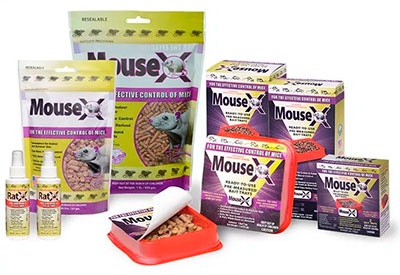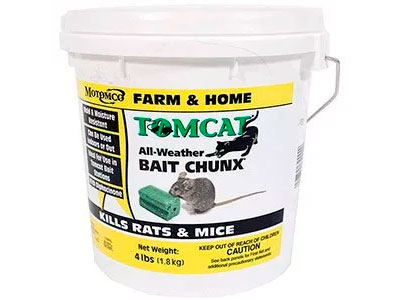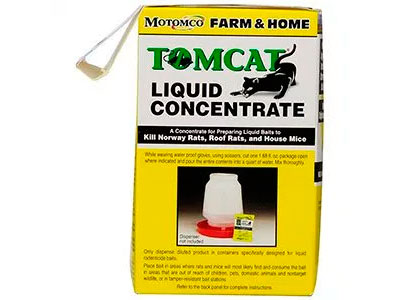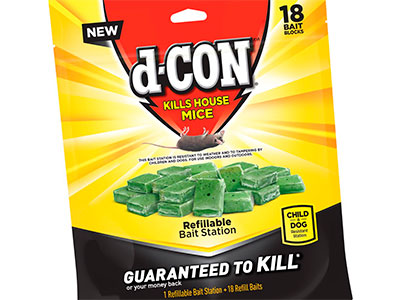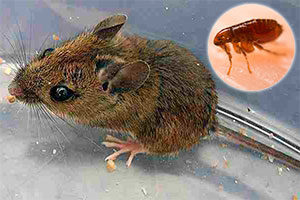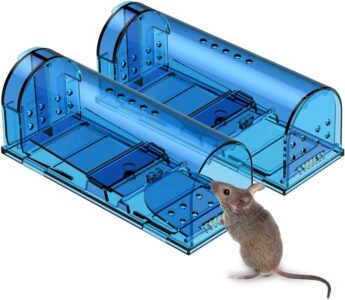Dealing with a mouse infestation can be frustrating and unsanitary. These tiny invaders can contaminate food, damage property, and spread disease throughout your home. Finding the right mouse poison or bait is crucial for effective elimination. This comprehensive guide explores the most best mouse poisons and baits available, helping you choose the best option to rid your home of these unwelcome guests once and for all.
Quick Picks: Best Mouse Poisons of 2025
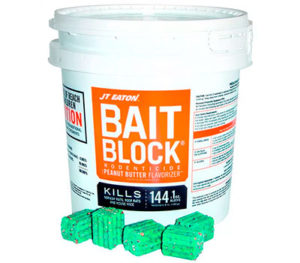
Editor’s Choice
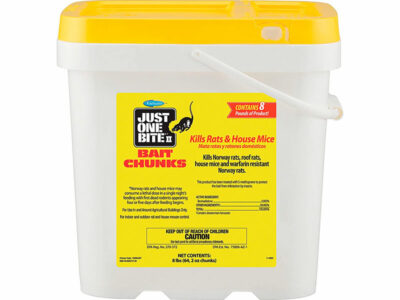
People’s Choice
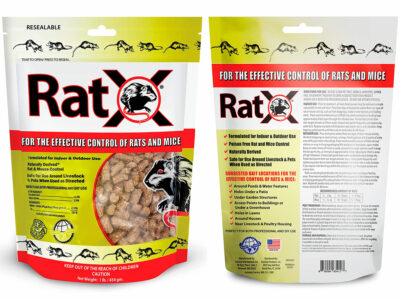
All-Natural Option
- Understanding Mouse Poisons: Types and How They Work
- Top 7 Best Mouse Poisons and Baits Reviewed for 2025
- How to Choose the Right Mouse Poison for Your Situation
- Effective Baiting Strategies for Eliminating Mice
- Alternative Control Methods
- Homemade Mouse Poisons
- Using Smoke Bombs for Mice Control
- When to Call a Professional
- Conclusion
- Frequently Asked Questions
Understanding Mouse Poisons: Types and How They Work
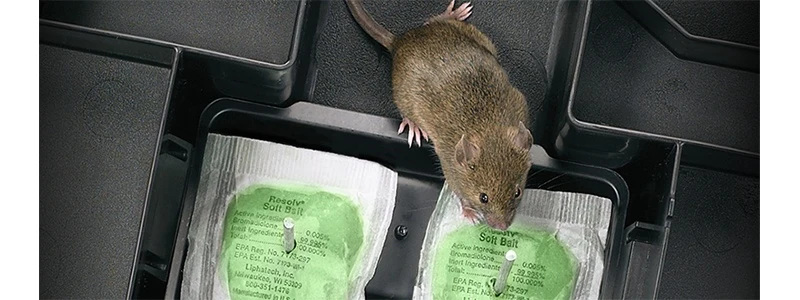
When it comes to eliminating mice from your home, understanding how different mouse poisons work can help you choose the most effective option for your situation. Mouse poisons (rodenticides) generally fall into three main categories based on their active ingredients and mechanism of action.
Anticoagulants
Anticoagulants work by preventing blood from clotting, causing internal bleeding that eventually leads to death. They include first-generation (multiple-feed) and second-generation (single-feed) compounds. Popular ingredients include bromadiolone, diphacinone, and brodifacoum.
Neurotoxins
Neurotoxins such as bromethalin affect the central nervous system, causing paralysis and death. These poisons typically work faster than anticoagulants but don’t have an available antidote in case of accidental ingestion by pets or children.
Vitamin D3 Compounds
Cholecalciferol (vitamin D3) products cause calcium levels to rise to toxic levels, leading to kidney failure. These are becoming more popular as alternatives to traditional anticoagulants because they can be effective against resistant rodent populations.
Natural Formulations
Natural rodenticides like RatX use ingredients such as corn gluten meal and sodium chloride to cause dehydration in rodents without posing significant risks to other animals or humans. These are ideal for households with children and pets.
Always read and follow the label instructions on any rodenticide product. Many mouse poisons are restricted to use in specific locations and may require special handling. Keep all rodenticides out of reach of children and pets, and consider using tamper-resistant bait stations for added safety.
Top 7 Best Mouse Poisons and Baits Reviewed for 2025
After extensive research and testing, these seven mouse poisons and baits stand out as the most effective options available in 2025. Each product has been evaluated based on effectiveness, safety features, ease of use, and overall value.
JT Eaton Bait Block Rodenticide
Editor's ChoiceHow Does It Work
How to Use
- Place bait blocks in areas with signs of mouse activity, such as along walls, in corners, or near nesting sites
- For best results, place blocks 8-12 feet apart in infested areas
- Use in tamper-resistant bait stations if children or pets are present
- Check bait regularly and replace as needed until all signs of mouse activity have stopped
- Wear gloves when handling bait blocks to avoid transferring human scent
- Peanut butter flavor is highly attractive to mice
- 144 blocks provide enough bait for large infestations
- Comes in a resealable pail for easy storage
- First-generation anticoagulant is effective but less toxic than second-generation products
- Blocks are appropriately sized for mice
- Takes 2-3 days for mice to die after consuming bait
- Requires multiple feedings for some mice to ingest a lethal dose
- Not safe around children and pets unless used in tamper-resistant bait stations
- Some mice may develop resistance to first-generation anticoagulants
Just One Bite II Pellet Packs
People's ChoiceHow Does It Work
How to Use
- Place pellet packs intact - do not open the packs
- Position bait packs at intervals of 8-12 feet in areas with mice activity
- For each placement, use 3-10 pellet packs depending on infestation severity
- Place in dry locations where mice travel, such as along walls or near entry points
- Check bait regularly and replace as needed until all mouse activity stops
- Always use tamper-resistant bait stations if children or pets are present
- Highly effective second-generation anticoagulant requires less bait for a lethal dose
- Pre-filled place packs make handling safer and more convenient
- Grains and seeds mixed in make the bait very attractive to mice
- 8-pound bucket provides ample supply for severe infestations
- Effective against warfarin-resistant rodents
- More toxic than first-generation anticoagulants if accidentally ingested by non-target animals
- Flavor begins to wear off after extended exposure to air
- Must be placed in tamper-resistant bait stations if children or pets are present
- Death is delayed by 4-5 days after consumption
RatX Rat and Mouse Rodenticide Pellets
All-Natural OptionHow Does It Work
How to Use
- Place pellets in areas with rodent activity, focusing on paths they frequently travel
- For best results, remove other food sources to encourage consumption of the bait
- Use 1-3 tablespoons of pellets per placement location
- Position pellets near walls, in corners, or in other areas where rodents travel
- Replace any pellets that become wet or moldy
- Continue baiting until all rodent activity has ceased
- All-natural, non-toxic formula is safer around children and pets
- No secondary poisoning risk to predators that might consume poisoned rodents
- Environmentally friendly and biodegradable
- No harsh chemicals or poisons
- Rodents typically die in their nests, reducing the need to find and dispose of carcasses
- May take longer to work than chemical poisons (typically 5-7 days)
- Less effective in environments where rodents have easy access to water
- May not be as effective for severe infestations
- More expensive per ounce than traditional poisons
MouseX Mouse Killer Pellets
Best Eco-Friendly OptionHow Does It Work
How to Use
- Place pellets near areas with mouse activity such as along walls and in corners
- For optimal results, place 1-2 tablespoons of pellets at each location
- Position pellets in dry areas away from water sources
- Replace pellets if they become wet or moldy
- Continue baiting until all signs of mouse activity have stopped
- MouseX can be used both indoors and outdoors
- 100% natural formula is safer for households with children and pets
- No risk of secondary poisoning to predators
- Biodegradable and environmentally friendly
- Mice typically die in their nests, reducing cleanup needs
- Pleasant smell compared to chemical rodenticides
- Takes 4-7 days to be fully effective
- May be less effective in environments with abundant water sources
- More expensive per ounce than traditional poisons
- Requires more bait per placement than some chemical alternatives
Tomcat All-Weather Bait Chunx
Best for Outdoor UseHow Does It Work
How to Use
- Place bait chunx in areas where mouse activity has been observed
- Position chunx along walls, in corners, or near entry points where mice travel
- For outdoor use, place in protected areas where chunx won't be affected by heavy rain
- Use in tamper-resistant bait stations if children or pets are present
- Check and replace bait every 7-10 days until all mouse activity has ceased
- Wear gloves when handling bait to avoid transferring human scent
- Mold and moisture resistant formula works well in damp environments
- Effective for both indoor and outdoor use
- Attractive scent and taste to rodents
- Each chunx has a center hole for secure placement in bait stations
- Stays fresh longer than many competing products
- Takes several days for mice to die after consumption
- Requires tamper-resistant bait stations if used around children or pets
- Some mice may require multiple feedings for a lethal dose
- Less effective against rodents that have developed resistance to first-generation anticoagulants
Tomcat Liquid Concentrated Bait
Best Liquid OptionHow Does It Work
How to Use
- Mix 1 quart of water per pouch to prepare the liquid bait
- Place the diluted bait in appropriate bait stations designed for liquid
- Position bait stations along mouse travel paths, near walls, and entry points
- Check liquid levels regularly and refill as needed
- Keep out of reach of children and pets
- For best results, eliminate other water sources to encourage consumption
- Effective alternative when solid baits are being ignored
- Works well in hot, dry environments
- Mice are often highly attracted to the liquid format
- Contains a potent anticoagulant that works reliably
- Convenient concentrated format allows for easy mixing
- Requires special bait stations designed for liquid baits
- More potential for spills and contamination than solid baits
- Not suitable for outdoor use in rainy conditions
- Must be replaced more frequently than solid baits due to evaporation
- Cannot be used in areas where it might freeze
d-CON Refillable Bait Station
Best Child-Resistant OptionHow Does It Work
How to Use
- Place the bait station along walls, in corners, or near areas with mouse activity
- Position with the entry holes parallel to the wall for best results
- Check the bait station regularly through the clear window
- Refill with d-CON bait blocks when empty or as needed
- Keep multiple stations throughout the infested area for best coverage
- Replace empty bait blocks until all mouse activity has ceased
- Child and pet resistant design
- Comes pre-loaded with effective bait blocks
- Clear lid allows for easy monitoring
- Weather-resistant for indoor or outdoor use
- Refillable design is more economical than disposable options
- Vitamin D3 formula can be effective against anticoagulant-resistant rodents
- More expensive initial investment than loose bait
- Limited capacity compared to bulk bait options
- Some users report difficulty in opening the station to refill
- Larger than some competing bait stations
- May not fit well in tight spaces
Mouse poisons are deadly to rodents and can be harmful to children, pets, and wildlife if used improperly. Always read and follow the manufacturer’s instructions, and use tamper-resistant bait stations when children or pets are present. Dispose of dead rodents and unused bait according to local regulations to prevent secondary poisoning of predators and scavengers.
How to Choose the Right Mouse Poison for Your Situation
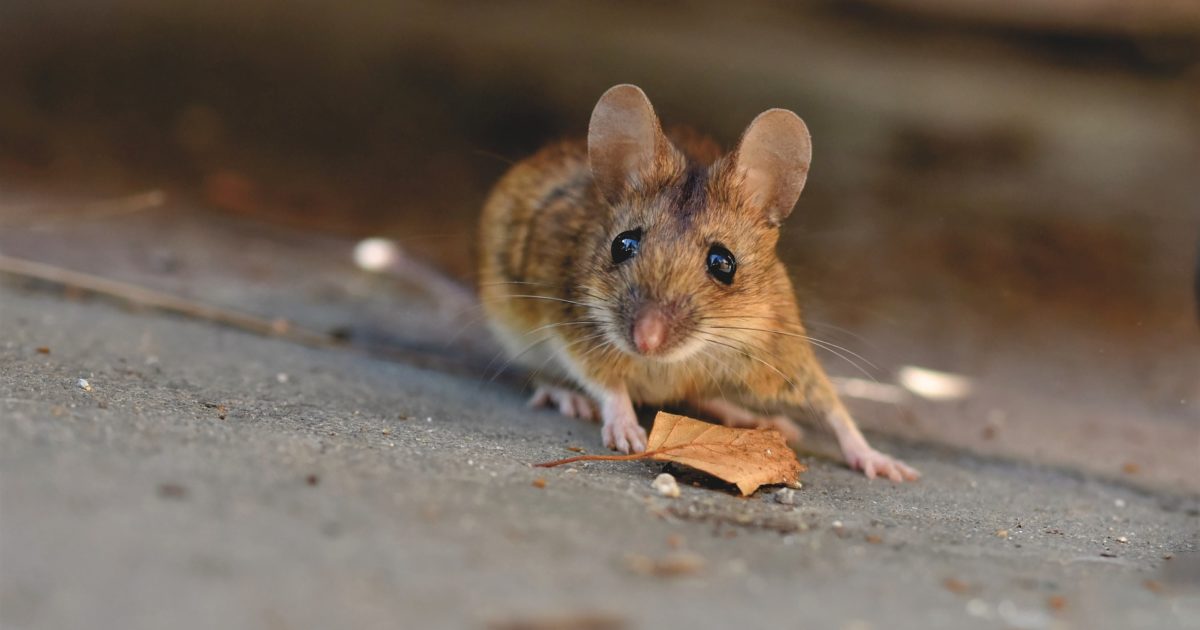
Selecting the most effective mouse poison depends on several factors unique to your specific situation. Consider these important elements when choosing a rodenticide product:
1. Safety Considerations
Your household composition should significantly influence your choice of mouse poison:
- Households with children and pets: Prioritize tamper-resistant bait stations and consider natural formulations like RatX or MouseX that pose lower risks if accidentally consumed.
- Wildlife considerations: In areas where wildlife might access bait or consume poisoned rodents, consider first-generation anticoagulants or natural products that reduce secondary poisoning risks.
- Environmental impact: Natural, biodegradable formulations have less environmental impact than chemical alternatives.
2. Location and Environment
Where you plan to use the poison affects which product will be most effective:
- Indoor use: Any formulation can work indoors, but consider odor, mess potential, and safety. Bait blocks and pellet packs in tamper-resistant stations are often ideal.
- Outdoor use: Choose weather-resistant formulations like Tomcat All-Weather Bait Chunx that can withstand moisture and temperature fluctuations.
- Damp areas: For basements, crawl spaces, or outdoor applications, select moisture-resistant baits that won’t quickly deteriorate.
- Hot, dry environments: Consider liquid baits like Tomcat Liquid Concentrated Bait in these situations, as mice will seek out water sources.
3. Infestation Severity
The size of your mouse problem should influence your product selection:
- Minor infestations: First-generation anticoagulants or natural products may be sufficient for small numbers of mice.
- Severe infestations: Second-generation anticoagulants like those in Just One Bite II provide more powerful, single-feeding effectiveness for large populations.
- Resistant populations: If mice have survived previous poisoning attempts, switch to a different active ingredient like bromethalin or cholecalciferol.
4. Speed vs. Safety
Different poisons work at different speeds, which presents a tradeoff:
- Quicker elimination of the infestation
- Less time for mice to develop bait shyness
- Reduced total consumption of poisoned bait
- Often safer as they allow time for antidotes in case of accidents
- Prevent bait shyness as mice don’t associate illness with bait
- May be more effective for colony elimination as mice don’t warn others
For most home situations, a medium-acting anticoagulant like diphacinone (found in JT Eaton Bait Block) offers a good balance between effectiveness and safety. It works relatively quickly while allowing time for vitamin K treatment in case of accidental ingestion by pets. Always have the poison’s packaging available in case emergency treatment is needed.
Effective Baiting Strategies for Eliminating Mice
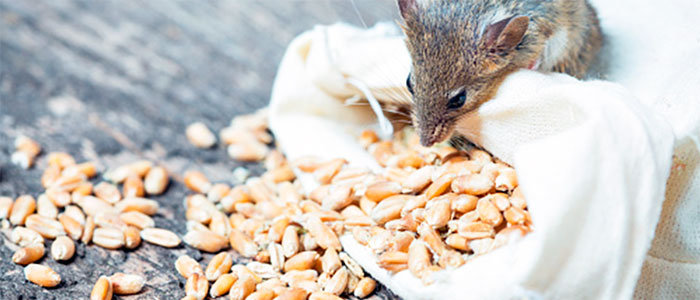
Proper bait placement and strategy are just as important as choosing the right poison. Follow these key tactics to maximize your chances of success:
Identifying Mouse Activity Areas
To effectively place baits, you first need to identify where mice are active:
- Look for droppings: Small, dark droppings (about the size of rice grains) indicate mouse presence and travel paths.
- Check for grease marks: Mice leave dark, greasy marks along walls and surfaces they frequently travel.
- Listen for activity: Mice are most active at night, so listen for scratching and scurrying sounds after dark.
- Look for gnaw marks: Mice constantly gnaw to wear down their ever-growing teeth, leaving visible marks on wood, plastic, and even soft metals.
- Detect nesting materials: Shredded paper, fabric, insulation, or dried plant matter indicate potential nesting sites.
Strategic Bait Placement
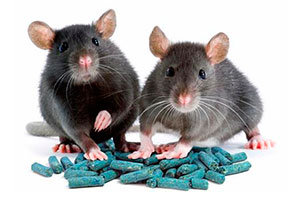
Once you’ve identified mouse activity, use these placement strategies:
- Follow the walls: Mice prefer to travel along walls and baseboards rather than in open spaces. Place bait stations or poison along these “mouse highways.”
- Target entry points: Position bait near holes, cracks, and openings where mice enter your home.
- Identify food sources: Place bait near areas where food is stored or prepared, such as kitchens, pantries, and garbage areas.
- Cover multiple locations: For effective control, place bait stations 8-12 feet apart throughout the infested area.
- Secure elevated locations: Since mice are excellent climbers, consider placing bait in attics, drop ceilings, and along pipes or rafters.
To increase effectiveness, first place unbaited traps or non-poisonous foods (like peanut butter on crackers) in potential locations for 1-2 days. This helps mice become accustomed to feeding in these spots before introducing poison, reducing bait shyness and increasing consumption.
Maximizing Bait Acceptance
Even the best poison won’t work if mice won’t eat it. Try these techniques to increase bait acceptance:
- Eliminate competing food sources: Store food in airtight containers and clean up crumbs and spills promptly.
- Pre-bait the area: Place non-poisonous foods similar to your chosen bait to get mice accustomed to feeding before introducing poison.
- Use fresh bait: Replace bait regularly as it can lose its appeal over time, especially in humid conditions.
- Vary bait types: If one type of bait isn’t working, try a different formulation or active ingredient.
- Wear gloves: Human scent on bait can deter mice from feeding. Always use gloves when handling bait.
Bait Maintenance and Monitoring
Proper maintenance of your baiting program is essential for success:
- Check bait stations regularly, at least once every 2-3 days during active infestations.
- Replace consumed bait promptly to maintain a consistent food source for mice.
- Remove and dispose of dead mice safely using gloves, and place them in sealed plastic bags.
- Clean up any scattered bait to prevent accidental consumption by non-target animals.
- Keep records of bait consumption patterns to track the effectiveness of your control program.
- Continue baiting for at least two weeks after the last signs of mouse activity to ensure complete elimination.
Safety First: Always wear gloves when handling mouse poison or dead mice. Wash your hands thoroughly afterward, even if you wore gloves. Keep all poison products in their original containers, stored in locations inaccessible to children and pets.
Alternative Control Methods
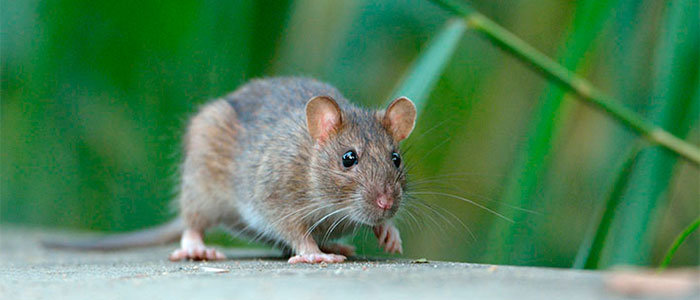
While poisons are effective, they should often be used alongside other control methods for comprehensive mouse management:
Traps
Traditional snap traps, live catch traps, and electronic traps can all be effective, especially for small infestations. Bait them with peanut butter, which mice find irresistible, or other foods like chocolate, seeds, or bacon.
Exclusion
Seal entry points as small as 1/4 inch using steel wool, caulk, hardware cloth, or metal flashing. Focus on areas where pipes and wires enter the home, foundation cracks, and gaps around doors and windows.
Sanitation
Eliminate food sources by storing food in airtight containers, cleaning up crumbs and spills immediately, and maintaining clean cooking and eating areas. Remove clutter that provides nesting sites.
Repellents
Natural repellents like peppermint oil, ultrasonic devices, or commercial mouse repellents can help deter mice from entering specific areas, though they’re rarely effective on their own for existing infestations. Combining these repellents with other methods, such as sealing entry points and maintaining cleanliness, can enhance their effectiveness. Some of the best natural mouse repellents include spices like cayenne pepper and essential oils like clove or eucalyptus, which can be strategically placed around the home. For those dealing with larger infestations, it may still be necessary to consult with a pest control professional to address the problem comprehensively.
Homemade Mouse Poisons
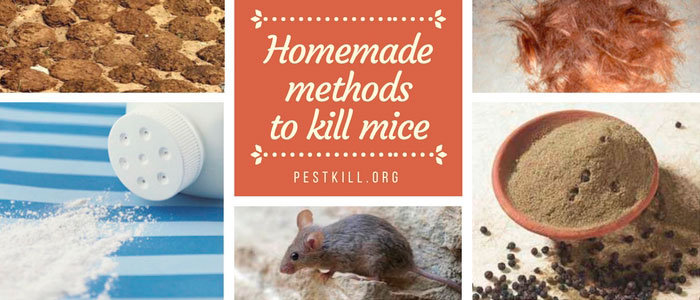
If you prefer DIY solutions, there are several homemade mouse poisons you can create using common household ingredients. These can be effective but should be used with the same caution as commercial products.
Homemade poisons still pose risks to children, pets, and wildlife. Always place them in tamper-resistant containers and out of reach of non-target animals and children.
Effective Homemade Mouse Poison Recipes
- Plaster of Paris and Cornmeal Mix
Mix 1 part plaster of Paris with 2 parts cornmeal or flour. Add a small amount of sugar to make it more attractive to mice. The plaster hardens in their digestive systems when they drink water after consuming the mixture.
- Baking Soda and Sugar
Mix equal parts baking soda and powdered sugar. The sugar attracts the mice, while the baking soda creates gas in their digestive systems that they cannot expel, causing internal distress.
- Instant Potato Flakes
Place dry instant potato flakes in areas where mice travel. After consuming the flakes and drinking water, the flakes expand in their stomachs, causing fatal bloating.
- Cement Powder Mix
Similar to plaster of Paris, mix cement powder with sugar and cocoa powder. When mice consume this mixture and then drink water, the cement hardens in their digestive tract.
For better results with homemade poisons, pre-bait the area with non-toxic versions of your bait for several days before adding the active ingredients. This reduces bait shyness and increases acceptance of the poisoned bait.
Using Smoke Bombs for Mice Control
Smoke bombs are another option for mice control, particularly for outdoor burrows and nests. These products emit toxic smoke that suffocates rodents in enclosed spaces.
Smoke bombs should NEVER be used indoors or near structures. They create significant fire hazards and can release dangerous fumes into living spaces. They are strictly for outdoor use in open areas away from buildings.
Top Rated Smoke Bombs for Outdoor Mice Control
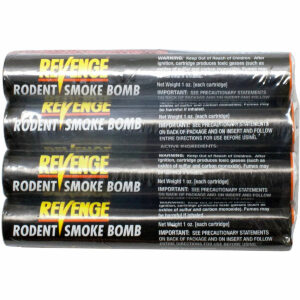
Revenge Rodent Smoke Bombs
- Effective for outdoor burrows and tunnels
- Contains sodium nitrate, sulfur, and charcoal
- Produces thick, suffocating smoke
- 4 bombs per package
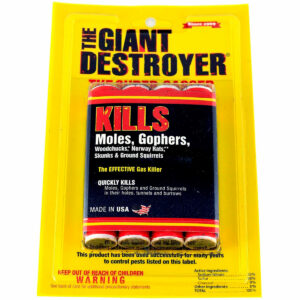
The Giant Destroyer
- Made in the USA
- Contains sulfur, potassium nitrate, and charcoal
- Kills rodents in holes, burrows, and tunnels
- 4 tubes per package
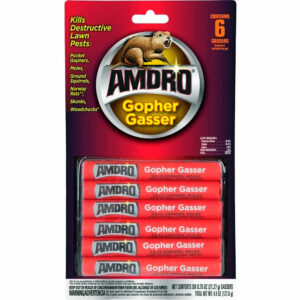
Amdro Gopher Gasser
- Easy-to-use gasser sticks
- Contains sulfur, potassium nitrate, and charcoal
- Emits thick, dense smoke
- No secondary poisoning concerns
How to Use Smoke Bombs Safely
- Identify all entrances to the burrow system.
- Ensure the soil is slightly damp for best results (dry soil absorbs too much smoke).
- Light the smoke bomb according to package directions and place it deep into the main burrow entrance.
- Cover the entrance immediately to prevent smoke from escaping.
- Seal all other burrow openings as smoke begins to appear from them.
- Keep children, pets, and wildlife away from the area during and after treatment.
- Do not use near structures, overhanging trees, or dry vegetation due to fire risk.
When to Call a Professional
While DIY mouse control can be effective for minor to moderate infestations, there are situations when professional pest control services are recommended:
- Large infestations that don’t respond to DIY methods after 2-3 weeks
- Recurring problems despite your best efforts
- Health concerns such as mouse-borne diseases or allergies triggered by mouse presence
- Structural concerns where mice may be damaging electrical wiring or building materials
- Safety concerns about using poisons or traps in homes with children or pets
- Food service or healthcare facilities that require professional-grade pest management
Professional exterminators have access to commercial-grade products, specialized equipment, and extensive training in rodent behavior. They can also identify and seal entry points that may be difficult for homeowners to detect.
Conclusion
Effective mouse control typically requires a multi-faceted approach combining baits, traps, exclusion methods, and sanitation. By selecting the right mouse poison for your specific situation, placing it strategically, and maintaining your baiting program properly, you can successfully eliminate these persistent pests from your home or property.
Remember that prevention is always better than cure. Once you’ve eliminated an existing infestation, focus on exclusion methods to keep mice from returning. Regular inspection and maintenance of potential entry points, proper food storage, and good sanitation practices will help ensure your home remains mouse-free for years to come. Additionally, educate yourself on how to eliminate mice effectively by utilizing traps and natural deterrents that are safe for your household. Engaging your family in awareness and action can reinforce these practices, making it a collective effort to maintain a mouse-free environment. Remember, consistency is key, so regularly revisiting these methods is essential to prevent future infestations. Additionally, consider implementing humane mouse removal techniques if you encounter any new visitors. These methods not only align with ethical standards but also minimize stress for both the animals and your household. By prioritizing humane solutions, you can maintain a peaceful environment while effectively managing any potential rodent issues.
Always read and follow all manufacturer’s instructions when using any rodenticide product. Keep all mouse poisons, traps, and baits out of reach of children, pets, and non-target wildlife. Your safety and the safety of those around you should always be the top priority in any pest control effort.
Frequently Asked Questions
How long does it take for mouse poison to work?
The time it takes for mouse poison to work depends on the type of rodenticide used. Anticoagulants typically take 3-5 days to kill mice after ingestion, while acute toxicants like bromethalin can work within 24-48 hours. Natural dehydrating agents such as those in RatX and MouseX may take 4-7 days to be fully effective.
Second-generation anticoagulants generally work faster than first-generation products, often requiring only a single feeding instead of multiple ones.
What is the most effective mouse bait?
Contrary to popular belief, cheese is not the most effective mouse bait. Mice are actually more attracted to foods high in sugar, fat, or protein. Peanut butter is consistently ranked as one of the most effective baits because of its strong smell and sticky consistency, which forces mice to stop and eat rather than grab and run.
Other effective baits include chocolate, nuts, seeds, bacon, dried fruits, and even nesting materials like cotton balls or string for pregnant female mice.
Is it better to use traps or poison for mice?
The choice between traps and poison depends on your specific situation. Traps are better when you have children or pets, want confirmation of kills, need to control where mice die, or have a small infestation. Poison is more effective for larger infestations, hard-to-reach areas, or ongoing prevention.
For comprehensive mouse control, a combination of both methods along with exclusion techniques and sanitation measures is usually most effective.
What should I do if my pet eats mouse poison?
If you suspect your pet has consumed mouse poison, contact your veterinarian or an emergency animal hospital immediately. Do not wait for symptoms to appear, as prompt treatment is essential. If possible, bring the poison packaging with you so the veterinarian knows exactly what toxin they’re dealing with.
For anticoagulant rodenticides, vitamin K1 is the antidote, but other types of rodenticides require different treatments. Prevention is crucial—always use tamper-resistant bait stations and keep all rodenticides out of reach of pets.
Where should I place mouse poison for best results?
For best results, place mouse poison along walls, in corners, and near entry points where mice travel. Mice prefer to run along edges rather than in open spaces, so positioning bait stations perpendicular to walls makes them more likely to encounter and enter the stations.
Place baits in dark, sheltered areas where mice feel safe feeding, and in areas where you’ve seen droppings, gnaw marks, or other signs of activity. Multiple bait stations spaced 8-12 feet apart will provide comprehensive coverage for most infestations.
